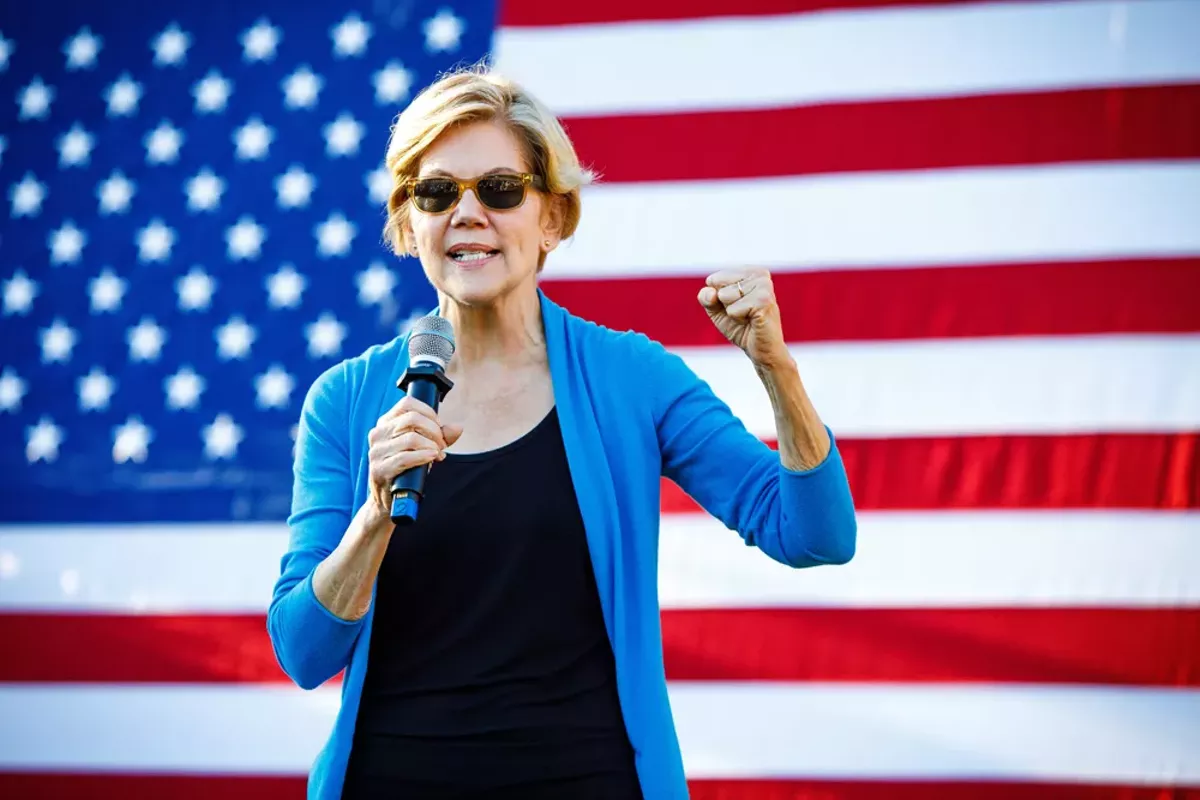After 15 interminable months, God knows how many debates, thousands of campaign ads, a million polls, a billion VERY URGENT fundraising emails, frontrunners collapsing (sorry, Kamala), nobodies becoming somebodies (heya, Pete), flashes in the pan burning out (Beto!), should-have-beens never being (we'll always have that housing plan, Julian Castro), and billionaires making TV stations rich — after all of that, voting in the Democratic primaries finally (finally!) begins this week.
I have no idea what's going to happen over the coming weeks or months. But after months of procrastination and vacillation, I've got a decision to make.
Ideologically — according to those myriad online quizzes — I most align with Bernie Sanders and Elizabeth Warren. But ideology isn't my primary motivator. My decision is more rudimentary, framed by one key principle: Donald Trump and the authoritarian movement that brought him to power is a malignancy that has infected the Republican Party; the longer he remains in power, the more likely it is to corrupt the entire body politic.
Which brings us to the most important thing I'm looking for in a candidate: Someone who can win.
Right now, polling generally shows Joe Biden outperforming the rest in head-to-heads with Trump, but not by enough to matter, especially after Trump's propaganda machine makes the Ukraine conspiracy theory Hillary's Emails 2.0. Besides, Biden hasn't raised a lot of money or generated much enthusiasm. He does, however, appeal to the Trump-wary suburbanites who won Democrats the House in 2018. (So does Mike Bloomberg.) But he'll have problems marshaling the base.
Bernie Sanders won't. If he's successful in turning out new voters, he'll fundamentally reshape the electorate. But it's a high-risk, high-reward proposition: After a billion dollars of hammer-and-sickle ads, those suburbanites might stick with the devil they know. Elizabeth Warren, meanwhile, is trying to split the difference, reaching out to Bernie's voters while playing footsie with the party establishment — a strategy that's pleased editorial boards but hasn't seemed to pay off otherwise.
As 2016 taught us, winning more votes isn't enough. You have to win the right votes in the right places. This year, that will mean Michigan, Wisconsin, Pennsylvania, North Carolina, Arizona, and Florida.
Which brings us to the second thing: Someone who can win the Senate.
When this era's history is written, there will be no greater villain than Mitch McConnell. And as long as he's running the Senate, any Democratic president will be hamstrung — not just on ambitious things like Medicare for All and the Green New Deal, but on judicial nominations and budgets, too. Assuming Doug Jones loses in Alabama, Democrats will need four pickups to win control. Maine and Colorado look doable, but Senate victories in North Carolina, Arizona, and Georgia will require a strong top-of-ticket showing. These are redder states where Dems have traditionally run as pragmatic moderates.
Then again, in North Carolina, millennials and Gen Z's comprise 36 percent of registered voters, up from 30 percent in 2016 and 32 percent two years ago. In 2018, when the state's Democrats narrowly outvoted Republicans, about a third of them showed up, while two-thirds of baby boomers did. If a candidate can double their turnout, you can throw out the old playbook.
Number three: Someone who will democratize our democracy.
By 2040, 70 percent of the country will live in 16 states, which means 30 percent of the country — mostly white, rural, and conservative — will have a supermajority in the Senate. They'll also have an outsize say in the Electoral College, which means they'll have an outsize say in judicial nominations, too. Ours will be a government by a minority dictated by geography.
This isn't just a future problem: The last two Republican presidents claimed the White House after receiving fewer votes than their opponents. The 53 Republican senators represent 15 million fewer Americans than the 47 Democrats. The next president needs to put this democracy gap front and center — beginning with a push for the National Popular Vote Interstate Compact and statehood for Puerto Rico and Washington, D.C.
There's a lot more on the next president's agenda, of course: Trump's racist and environmentally calamitous executive orders need to be shredded. Alliances need to be rebuilt. Democratic guardrails need to be reestablished. And, yes, we urgently need to address climate change and universal health care and socioeconomic inequality and criminal justice reform.
To do any of that, the Senate needs to kill the filibuster. Warren and Pete Buttigieg are on board, and Sanders and Amy Klobuchar are open to it. Biden, who's laboring under the delusion that he can turn the GOP sane, is a no. Even then, the next president will need the likes of Joe Manchin to get legislation through the Senate. That will constrain the realm of the possible.
Ultimately, big structural reforms will require big reforms to our institutional structures.
First things first, though: We have to excise the cancer.
Stay on top of Detroit news and views. Sign up for our weekly issue newsletter delivered each Wednesday.








